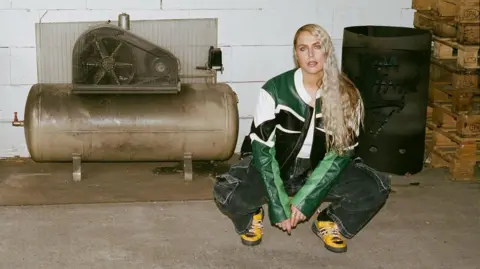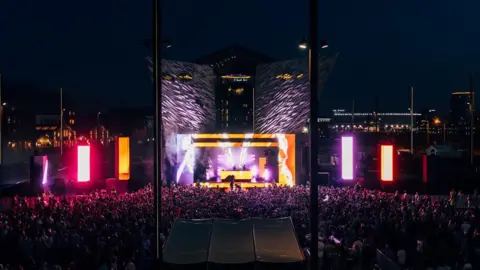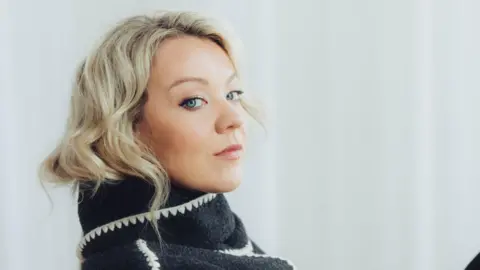Male-dominated music festivals 'are a slap in the face'
 Daan Dam
Daan DamAs initial line-ups are promoted for music festivals across the island of Ireland, a number of events appear set to be dominated by male artists.
Longitude Festival in Dublin has announced a starting line-up for 2025 with just one female artist on the bill, while Belfast's Belsonic has announced two female headliners out of seven.
It is a similar picture at Forbidden Fruit in Dublin with headliner Peggy Gou set to play alongside a list of predominantly male artists - although line-ups for this event, and others, are subject to change.
Last year, research suggested there were almost three times more male bands and solo artists than women playing the festival circuit.
Music company A2D2 examined 20 festivals playing across the UK in 2024 and found, on average, for every three male acts there was only one female band or solo artist.
'Fighting for representation'
Belfast-born DJ Sally C is one of the main acts taking to the stage at AVA Festival in her hometown this summer.
She said it is much harder for women to be seen, to be booked and to be taken seriously as an artist.
Speaking to BBC News NI, she said: "It's not a good feeling [seeing male dominated line-ups], it feels fickle, people fight so hard for this and artists are fighting for representation and it feels like a slap in the face."
"Nothing changes if nothing changes and it has been a standard that hasn't been broken down, and you have to take balance into consideration for things to change in the long term," she added.
She said when she plays sell-out shows or festivals that "so many people say to me, it's so good to see a woman killing it, like it's not a normal thing to be doing".
Sally said this is why it is important to have representation across the music industry.
 AVA, Photographer Hype
AVA, Photographer HypeIndustry figures "don't care enough", according to the DJ.
"They are happy to just carry on, and male bookers and big promoters are happy to sit with that but I think people are intimidated by women and minorities, and that they are 'taking something away' but that isn't what's happening, there is room for everyone," she added.
A report released in 2024 stated that the proportion of female performers at festivals across the UK rose from 9.2% in 2012 to 29.8% in the period of 2022 to 2023.
In 2022/23, 2.5% of all acts surveyed were non-binary and 6.9% were mixed in comparison to 58.4% male acts.
Larger festivals tend to have lower proportions of female and non-binary acts.
Publicly-funded festivals and those with female artistic directors tend to have a higher proportion of female acts, it has been suggested.
 Sarah Louise Ellis
Sarah Louise EllisFounder of Belfast's AVA festival, Sarah McBriar, said diversity across musical line-ups must be a priority for bookers.
Almost half of AVA's programme consists of female artists, with more to be announced.
Sarah said creating balance within festivals promotes creativity.
"It is about representing culture. We all want to go to festivals where there's diversity and mix don't we? So it's not just about the artists it's also about the environment you're trying to create for the audience."
Ms McBriar is one of only a few female promoters across the UK and Ireland.
Creating diverse environments for people to come and express who they are and feel comfortable is a top priority when her team are curating the festival, she said.
"Representation is really important you know if you're a female or non-binary or you're from the LGBT community, you want to look up to people and think 'that's where I want to be', and that's not going to happen if all they see is a male-dominated or majority programme," she added.
"I think in Northern Ireland, in Ireland and in the UK, it's so important that you're also trying to progress culture, you're trying to actually create something that is inclusive, that is inspiring, that is exciting and that is pushing the dial on things."
MCD Productions, Festival Republic and Shine Productions have been contacted for comment.
